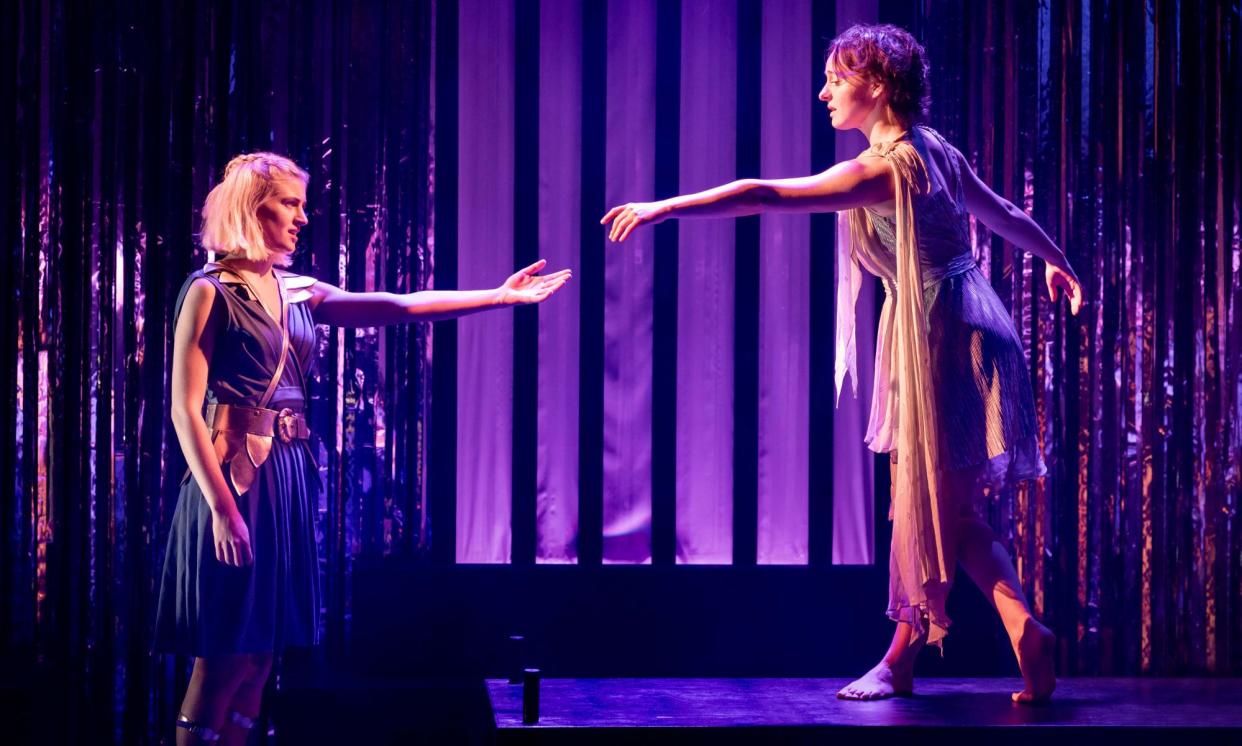Sappho review – the poet’s passions, from ancient Lesbos to spangly clubland

An ancient Greek love story, this show presents the ur-lesbian of the poetic canon, but not as we know her. Sappho bursts out of 6th-century BC looking like a clubber, grooving to synthesised beats.
Written by Wendy Beckett and originally performed in Greek, it enacts an alternative history in Lesbos as Sappho’s poetry is combined with song and dance on a set that spangles with silver and gold: this could be a themed “ancient Greek” night at the Ministry of Sound.
Co-directed by Beckett and Adam Fitzgerald, the ancient-modern mashup brings fun, froth and charm but unfortunately the various parts, as innovative as they are, do not hang together.
The story brings Sappho’s same-sex passions into conflict with her family’s demands. She wants to write poetry and love women; they want to arrange a marriage of convenience to a highborn man so she can climb the social ladder, into the elite class of Athens.
At the heart of it is Sappho’s love story – she has become enamoured of a woman from afar who we only see dancing. But the drama is derailed by unpenetrating debates on democracy, freedom of expression, governance, the marital contract and social change, all artificially tacked on. Aphorisms from Socrates and Aristotle are thrown in as well as passing mentions of class, privilege, Brexit and Rwanda, none of it explored.
A chorus chips in with chants and writhes or crawls expressionistically. All of this sets the story off-kilter and takes away from an otherwise promising play. It is a shame that the script is so convoluted and the characters cartoonish because the sparkly modern optics work well, the musical compositions by Mehdi Bourayou are catchy, the choreography by Fotis Diamantopoulos playful and the performances beguiling.
Georgie Fellows has an earnest intensity as Sappho, Velile Tshabalala’s Aphrodite makes fabulous entrances out of silver and gold curtains held up by the chorus, and Emmanuel Akwafo is a gloriously camp narrator who looks as if he has sashayed away from Drag Race. Eleanor Kane brings a sweet vulnerability to the narrow character of Adore, Sappho’s object of desire.
Even at under an hour and a half, it feels long but with reshaping, it may yet be turned into gold.
• At Southwark Playhouse Elephant, London, until 25 May


